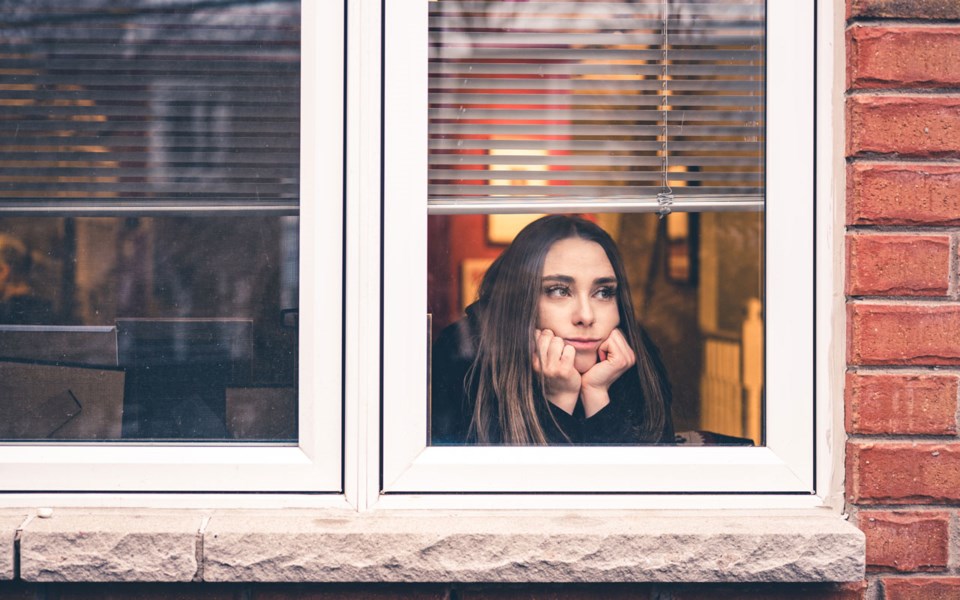I posted a Gary Larson cartoon to my Facebook account this week, which pictured an ice-cream truck selling liver and onions instead of the creamy treat, and likened the mobile sweet van to 2020.
It made me laugh, but kind of on that edge of crying, too. Then as I cruised around the social media portal, I read an article shared from the New York Times: “We’re All Socially Awkward Now,” by Kate Murphy—and it touched another nerve.
It hypothesizes that research on those “who have spent extended periods in isolation indicates social skills are like muscles that atrophy from lack of use. People separated from society—by circumstance or by choice—report feeling more socially anxious, impulsive, awkward and intolerant when they return to normal life.
“Psychologists and neuroscientists say something similar is happening to all of us now, thanks to the pandemic.”
We are, after all, a social species. Historically, we have found safety in numbers and collective units help make sure we procreate as well. We are hardwired to be together and loneliness and isolation can have deep psychological impacts—some of us are already experiencing them.
Said Murphy’s article: “Even if you are ensconced in a pandemic pod with a romantic partner or family members, you can still feel lonely—often camouflaged as sadness, irritability, anger and lethargy—because you’re not getting the full range of human interactions that you need, almost like not eating a balanced diet. We underestimate how much we benefit from casual camaraderie at the office, gym, choir practice or art class, not to mention spontaneous exchanges with strangers.”
This is one reason why Dr. Bonnie Henry, B.C.’s provincial health officer, wanted to get kids back to school.
So let’s pivot from there.
We can all agree that we want kids to be back at school. We know it is good for them and families. But what we want is for them to be back at school as it used to be. That’s not going to happen.
So now we have the teachers’ union going to B.C.’s Labour Relations Board out of concerns for teachers’ health. What did we think was going to happen?
In the last few days, the province announced that it will post a list of all the school that have incidents of COVID-19 so parents and administrators can keep up. Really? By the time the alert is out, the exposure is done—not every action is a reaction and those impacted are just waiting to see if they get sick, and how sick.
Let’s not forget we are at the end of the beginning, but we are nowhere near the end of this pandemic, which now has 22 people in ICU (as of Tuesday, Sept. 22) and 1,465 active cases of COVID-19 in the province, and 3,314 people who are under active public health monitoring.
If you want to see the list of exposures at schools for yourself, go here: bccdc.ca/health-info/diseases-conditions/covid-19/public-exposures.
This drive to feel and be normal is at the root of a great deal of our discontent right now.
Pique has received many thoughtful and compelling emails this week about Whistler Blackcomb’s decision not to offer the popular and really, rite-of-passage ski school programs for kids under seven years old.
The mountain, like many others around the world, decided that it could not offer programs to this age group at this time and meet the health protocols in place in B.C. facing as it does staffing and other challenges (I volunteered with this age group to get a free pass in years past and in general it spends more time inside than any other ski-school group).
Parents are upset and angry about the decision, which is understandable, but we need only look at what is happening at the schools to see that the reality is we are likely going to see COVID-19 at ski school despite the best efforts of Whistler Blackcomb.
But this program is about more than fun memories for kids, or learning to ski early and affordably, it provides daycare for many families, including the very workers Whistler Blackcomb is relying on to be in operation this winter.
How is this going to work if parents have to stay home to look after kids instead of working?
Our community, indeed our whole society, has backed itself into a corner when it comes to its reliance on the school system and companies like Whistler Blackcomb to provide all-day care for our little ones (yes, I used all these programs, too).
What is needed now is a community solution. Is there a way for Whistler Blackcomb to reconsider this idea so that it is a half day with the under seven-year-old kids not going inside? Can it be combined with another daycare offering? Is there a way to tap into the parent base to help provide care on a rotating basis so that parents can work and know their kids are looked after?
No one in the community wants Whistler Blackcomb ordered shut down by the province over concerns about COVID-19 transmission, so it behooves us as a community to try and come up with some solutions to cope with the season to come.
(As for the NDP calling an election—read this week's Maxed Out.)




